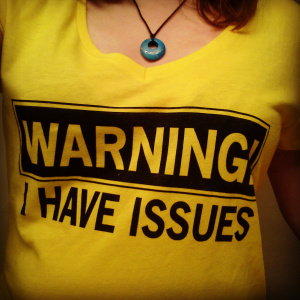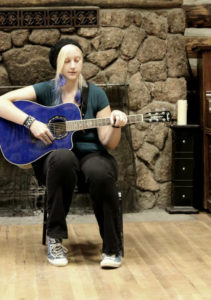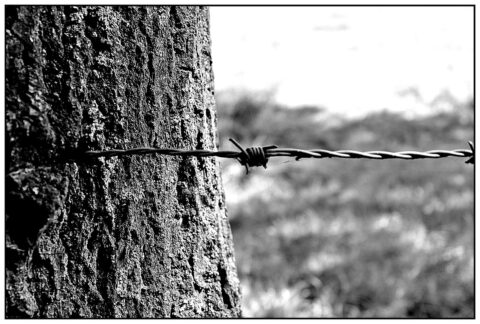Editorial Note: The following is reprinted with permission from Eleanor Skelton’s blog. It was originally published on October 6, 2014.
I remember when
We used to drive
Anywhere but here
As long as we’d forget our lives
We were so young and confused
that we didn’t know
To laugh or cry
Those nights were ours
They will live and never die
Together we’d stand forever…
– Skillet, Those Nights
The first week of February 2014 at around 4:30 am, I was driving my little white Toyota sedan that I named Journey somewhere between east Houston and Beaumont, Texas, floating through bayou fog and the darkness before dawn.
I adore roadtrips. Few other activities allow my brain that raw time stretching as far as the humming asphalt between my tires for pondering my life’s direction and my purpose.
No school, no work, just hours and hours of listening to music and calling friends or chatting with anyone in the car I’ve managed to kidnap. I can just be and enjoy existence. Roadtrips make me feel alive.
Two of my housemates traveling with me had fallen asleep in the backseat a few hours before. Our little escapade is still nicknamed “that one time we drove an extra 15 hours to have a 20 minute conversation with Mullet Jesus.”
We’d left Colorado Springs around 11pm Friday night, arrived in Dallas around 1pm, napped and visited friends, and now I was in the 4th hour of the 6 hour drive that Saturday night stretching into Sunday. The remaining itinerary involved church, a 9 hour drive to Lubbock to see Skillet at the Rock and Worship Roadshow, then 7 hours back home.
Despite the Monster drinks and beef jerky, I knew I was nearing my limits. I turned up the speakers and scrolled for Switchfoot’s Beautiful Letdown on my iPod.
Don’t close your eyes, don’t close your eyes / This is your life and today is all you’ve got now / Yeah, and today is all you’ll ever have…
The rhythmic, deep buzz of the opening notes blended with my thoughts. Don’t stop feeling this semester. Don’t forget how you learned to be alive, I reminded myself.
This is your life, is it everything you dreamed that it would be? / When the world was younger and you had everything to lose…
I imagined my 5-year-old self. What would she think of adult me? She’d be slightly ecstatic, I decided. I was finally going on adventures my heart longed for, and at last I had friends.
– – – – – – – –
Since recovering from repression, emotional honesty has been crucial.
My counselor told me summer 2013 that other people, including my parents, wouldn’t understand me unless I told them how I felt.
And I’ve found abundant, vibrant life in community and artistic expression.
Late nights driving around town with my friend MangyCat and the Midnight Muse writers and making miniatures in my friend Kim’s cozy basement were staples of my first year living outside the box.
But last spring, I took an entire semester of courses for pure enjoyment: Acting, 2D Art, Koine Greek, Poetry Workshop, and Choir.
My heart is in theater, both inside the church and beyond it, which I admitted to my friend Cynthia Barram last month when I volunteered to act for Haunted Mines, a local haunted house.
“Honey, everybody uses theater to work out their emotional problems,” she replied.
Slam poetry, which I discovered 6 months before moving out, became my catharsis, a safe place for open and honest expression. Almost like a new form of church.
My two favorite slam poems are Confession: For the Christian part of me (Joel McKerrow) and Letter to my 10 year old self (Susan Peiffer, of Hear Here, the Colorado Springs local slam team).
I heard Joel perform his poem live at an open mic in the campus pub one Friday night in October 2012. He said he felt privileged to perform it in Colorado Springs, among all the religious tension. He begins:
For the Christian part of me,
not for the Christ, but for the Christian,
I am sorry.
For when I look at the book and look at my life,
when I look at the Christ and look at the church,
the two are as black and white.
So for the way I have silenced you,
with words that I thought were the only truth,
for every preacher that has yelled at you
every Bible that has been quoted at you,
every megaphone that has damned you,
every friend that has judged you,
every parent that has guilted you,
I am sorry.
And Susan’s poem sparks new beginnings for me through my old scars. I love how she ends:
And Susan, one day, occupy your body again.
Realize and understand the gentleness of touch.
And let this realization convince you
that you are much, much more than a product of your past.
You are the manifestation of some dream whom destiny means to last
and you will always have words.
Words will never leave you.
I don’t have much else to tell you, Sue,
because it gets better, yeah, but it gets worse, too.
Remember, beloved, you are made of poetry.
Stardust, wanderlust.
[….]
You will fall in love, and you will be partially fixed.
And if you miss your youth one day,
You are secure enough to say
You feel twelve again
All over like it should have been
Even if it takes ’til 36.
One day, I want to shout out my story as they have, unashamed and no longer silenced. But for now, I am learning how to feel every day until it’s like breathing.




 I described the experience to my friend
I described the experience to my friend 
